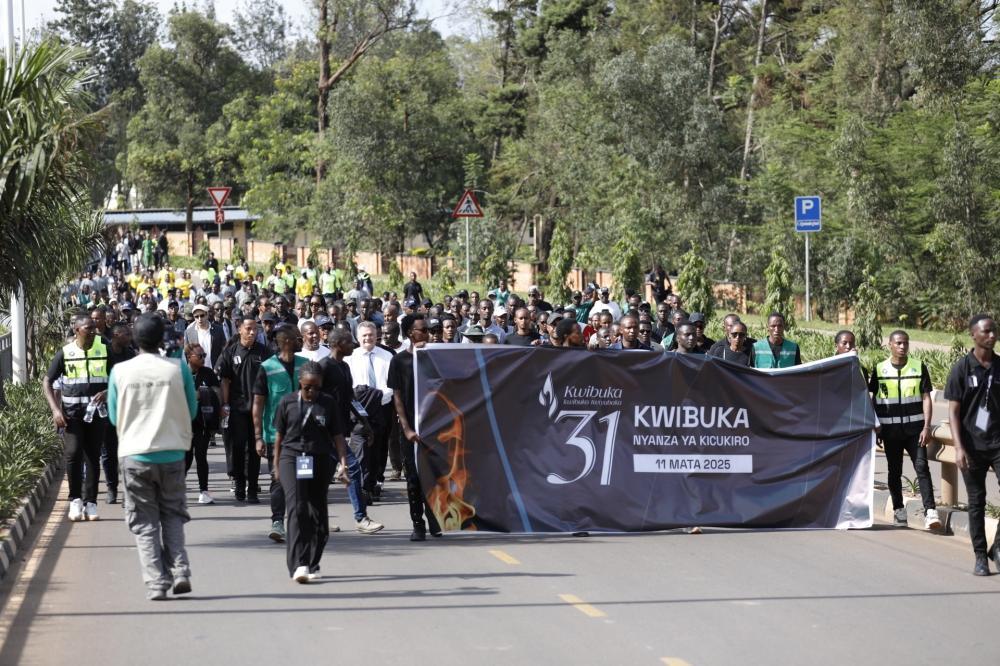Africa-Press – Rwanda. It was April 11, 1994. A date that should be carved into Belgium’s national conscience — not as a scar, but as a mirror. Because on that day, at ETO Kicukiro, Belgium did not just abandon Rwanda. It abandoned humanity.
There were trucks. There were guns. There was manpower. But they packed dogs and left more than 4,000 Tutsi civilians who had fled to the school compound in desperate hope that the so-called peacekeepers would live up to the word “peace.”
Instead, the Belgians packed up and left. Not in a rush of helplessness, not because they were overwhelmed — but in order. With protocol. With priority. And the priority? White expatriates. Dogs. Yes — dogs. Belgian soldiers made time to load dogs into their evacuation vehicles while terrified Rwandan men, women, and children begged for protection. Begged to at least be escorted to the RPF-controlled zone nearby. But no. That would have required courage and humanity.
What they left behind wasn’t just people. It was a bloodbath waiting to happen — and it happened. The Interahamwe swiftly moved in with machetes and guns. What had been a compound of hope became a slaughterhouse. The peacekeepers’ tyre tracks were still fresh in the dirt when the killing began.
Let that sit.
How do you live with that? How do you look history in the eye and not flinch?
But somehow — somehow — Belgium found the audacity not just to look away, but to lecture. To critique Rwanda’s leadership, reconciliation efforts, and sovereignty. To hold summits and panels on “human rights” while never fully answering for what they did — or rather, what they didn’t do — in April 1994. It’s the kind of hypocrisy you need a strong stomach to swallow. Or no conscience at all.
And let’s be clear: this wasn’t about incapacity. It was about choice. A deliberate, shameful choice rooted in the same colonial arrogance that once split our people into labels, watched the consequences burn, and walked away like it never held the match.
Rwandans were not asking for miracles. We weren’t even asking for justice in that moment. We were asking to live. To be walked a few kilometers to safety. To be seen as worthy of protection. And Belgium — uniformed, armed, and well-resourced — said no.
So the verdict is in.
Complicity. And it wore a blue helmet.
Not just once. Not just on April 11th. But in every statement since that tries to water it down. In every excuse made in hushed diplomatic rooms. In every deflection. In every silence.
Belgium, this isn’t just history. This is a memory. Living. Breathing. Bleeding. And while you packed up your guilt alongside your dogs and disappeared, we stayed. We buried our dead. We carried our grief. And we rebuilt a nation — not with your help, but despite your betrayal.
So this Kwibuka, as we light our candles and hold our silence, know this: we have not forgotten.
And we never will.
We see Belgium’s double-sided attempts to face its shame — polished Kwibuka messages to the public, while back home, remembrance is quietly discouraged and safety becomes “too much to guarantee.”
We see the performance of solidarity — while sheltering perpetrators in broad daylight.
We see the contradiction. The cowardice dressed up as diplomacy.
And we are not fooled.
Source: The New Times
For More News And Analysis About Rwanda Follow Africa-Press






